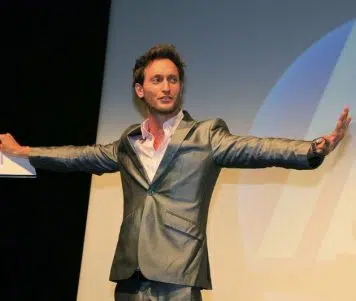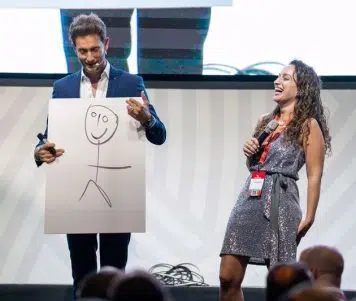
Can a Sensory Show Impact our Subconscious After the Show?
Sensory art and mentalism shows are heavily based on psychology, elements from neuroscience, and an understanding of how people think, act, and respond to triggers and events. But does this type of super-sensory performance also have an impact on a person’s subconscious, whether as a participant in the show or as a spectator in the audience? If it does have an impact on the subconscious, then is it possible that this could continue even after the show is over? We will attempt to answer this captivating question, which to a great extent represents the complexity and uniqueness of this area of entertainment.
Subconscious influences during sensory art shows
First of all, we must establish whether a sensory art show even impacts the subconscious of the people at the show. Through techniques such as suggestion, guided imagery, the element of surprise, confusing the audience or the participants on stage, and so forth, the subconscious is definitely influenced during a mentalism and sensory art performance.
Often, this very impact on the subconscious is an important part of a mentalism act’s success and in creating the amazing, inconceivable result so characteristic of these shows. For example, when Lior Suchard “takes away” a participant’s ability to speak, or when he causes a participant to be unable to move her legs when she is standing on stage.
Naturally, to achieve results like these and this level of influence on the subconscious, the sensory artist must be very skilled, practice a lot, and understand the acts precisely and very carefully.
It is exactly through the same impact on the subconscious that a sensory artist is capable of “knowing” even before the show what the audience will think, and of reading the thoughts of people who he has never met.
Is the impact on the subconscious caused by the mentalist or by the participant at the show?
After agreeing that there is definitely an impact on the subconscious when a person participates in a sensory art and mentalism show, as well as on the audience watching the show, the question arises as to whether this influence is caused by some sort of “power” of the mentalist himself, or if the process is natural and caused by the person himself as he participates in or watches the show?
Like many things in life, the answer is somewhere in the middle in this case too. This subconscious influence is caused by elements and things that the mentalist does and applies during the course of the performance, but it is activated by the person himself through thought processes and the natural psychological impact of parts of the show. For example, a specific action that a sensory artist will tell a participant to do can influence his subconscious (by creating a pseudo-memory or taking advantage of the confusion caused by the very act of getting up on stage in the middle of a show). In addition, the person himself influences his subconscious through things that he sees and experiences during the show, hints, certain actions, and so forth.
Does the influence on the subconscious continue after the show is over?
Now, for the question that brought us here today: does the impact on the subconscious during a mentalism show last even after the show is finished? In the broadest sense, of course the participants and the audience don’t remain “under the influence” of the mentalist after the show is over, so from that perspective, the impact on the subconscious does not continue.
However, and this is an important points, the influence on the subconscious that caused the mentalism or sensory art act to work in the first place during the show, definitely remains, and the experience lasts and is even remembered more strongly. Therefore, even after you leave one of Lior Suchard’s shows, you will continue to wonder – sometimes even months and years later – how he managed to know what the participants were thinking and what they would do, or how he succeeded in performing the wonders he did during the show.








